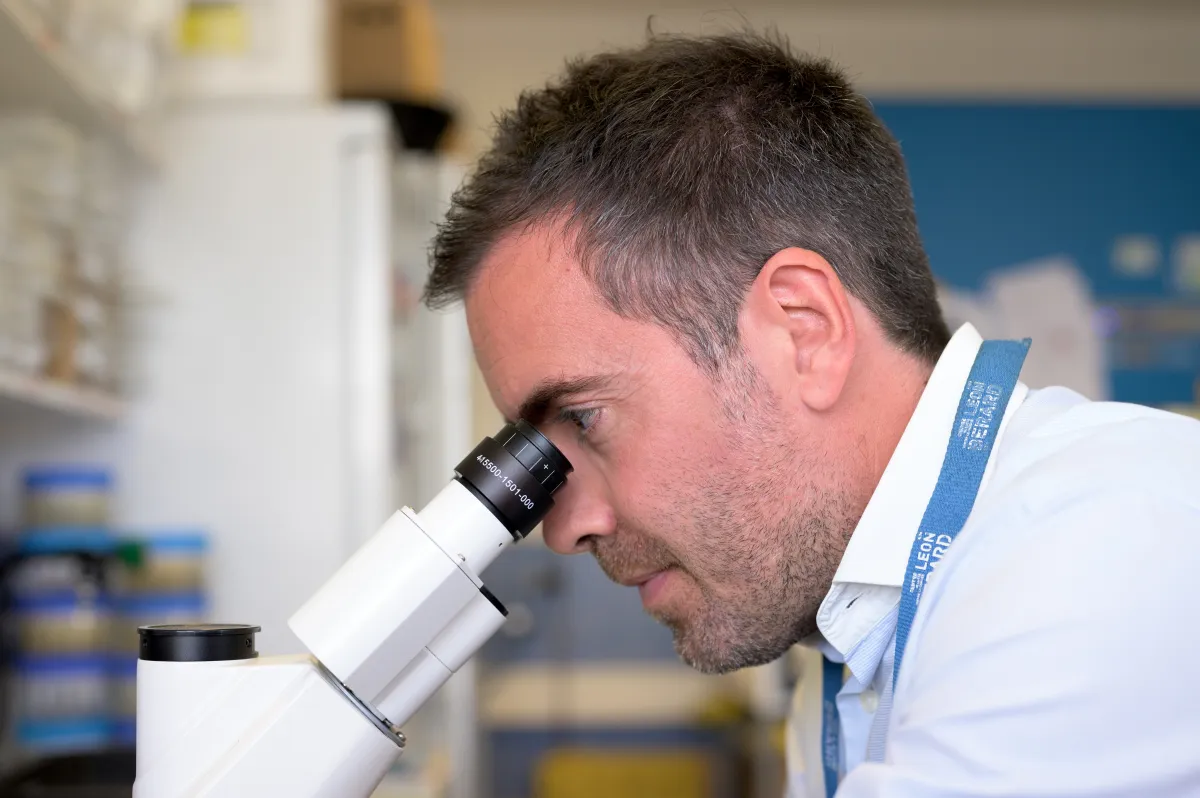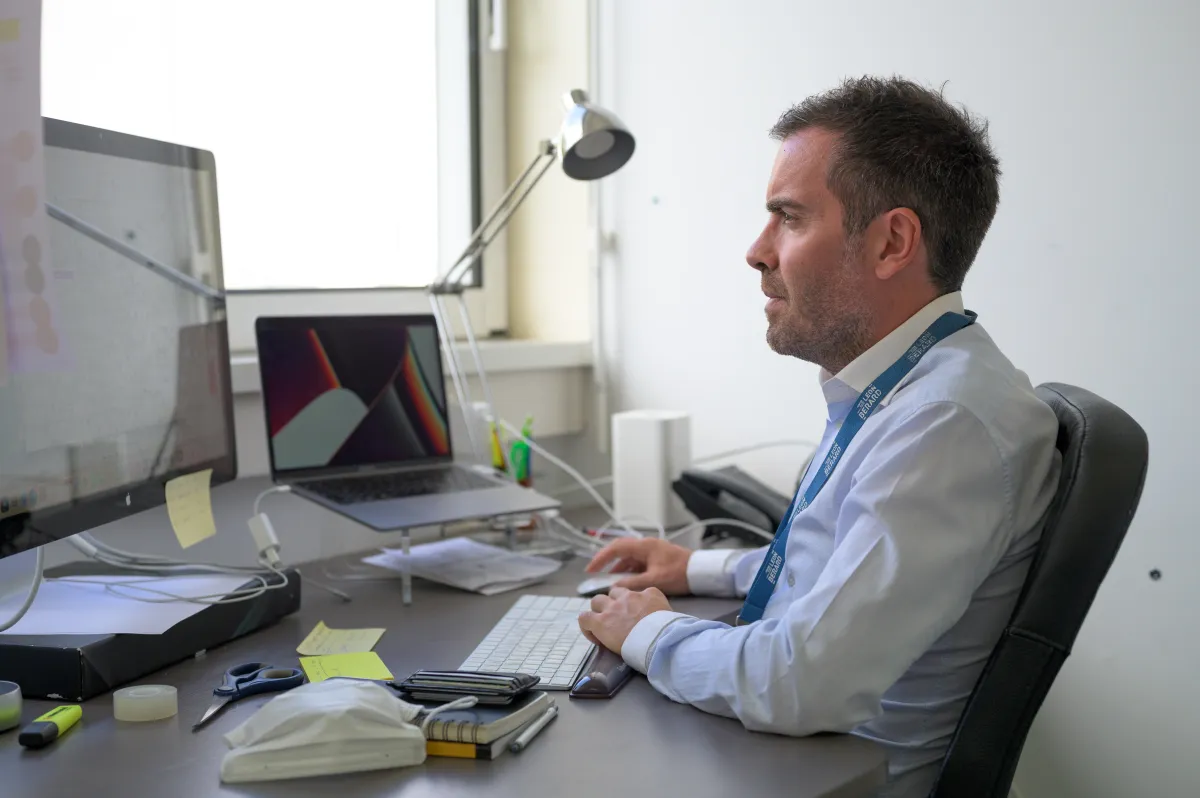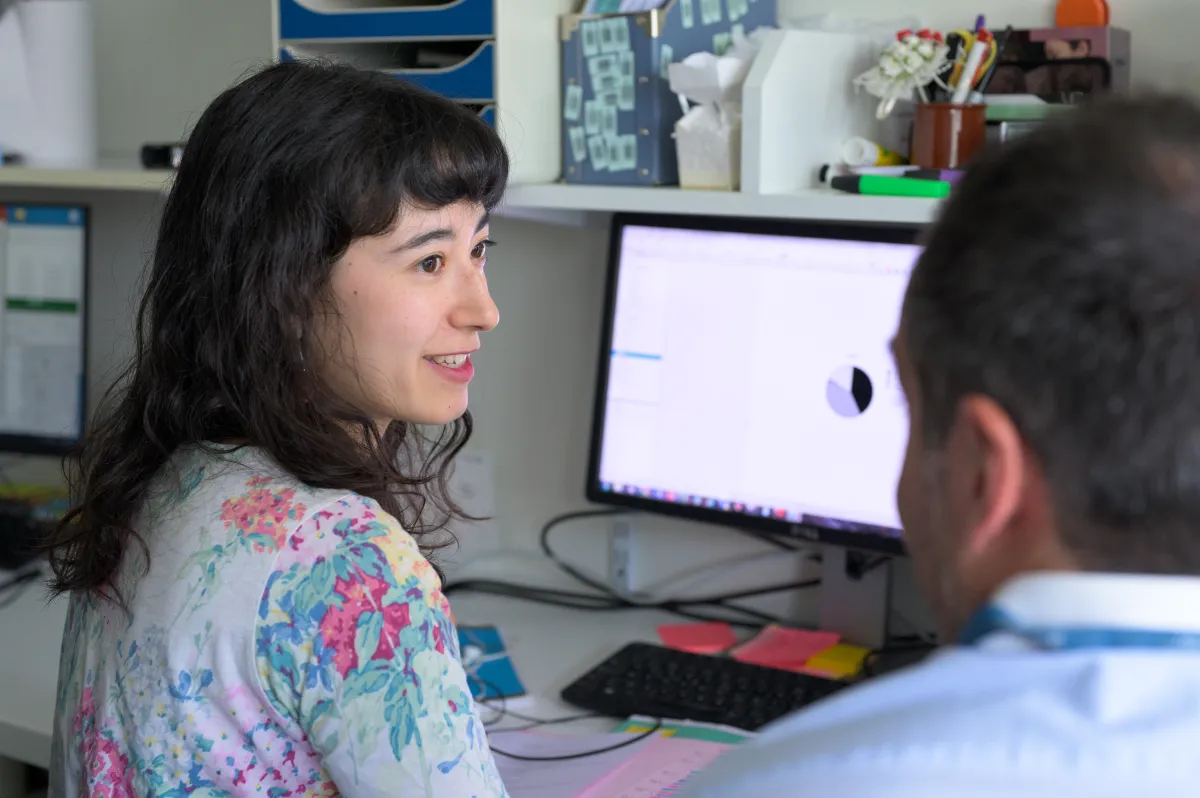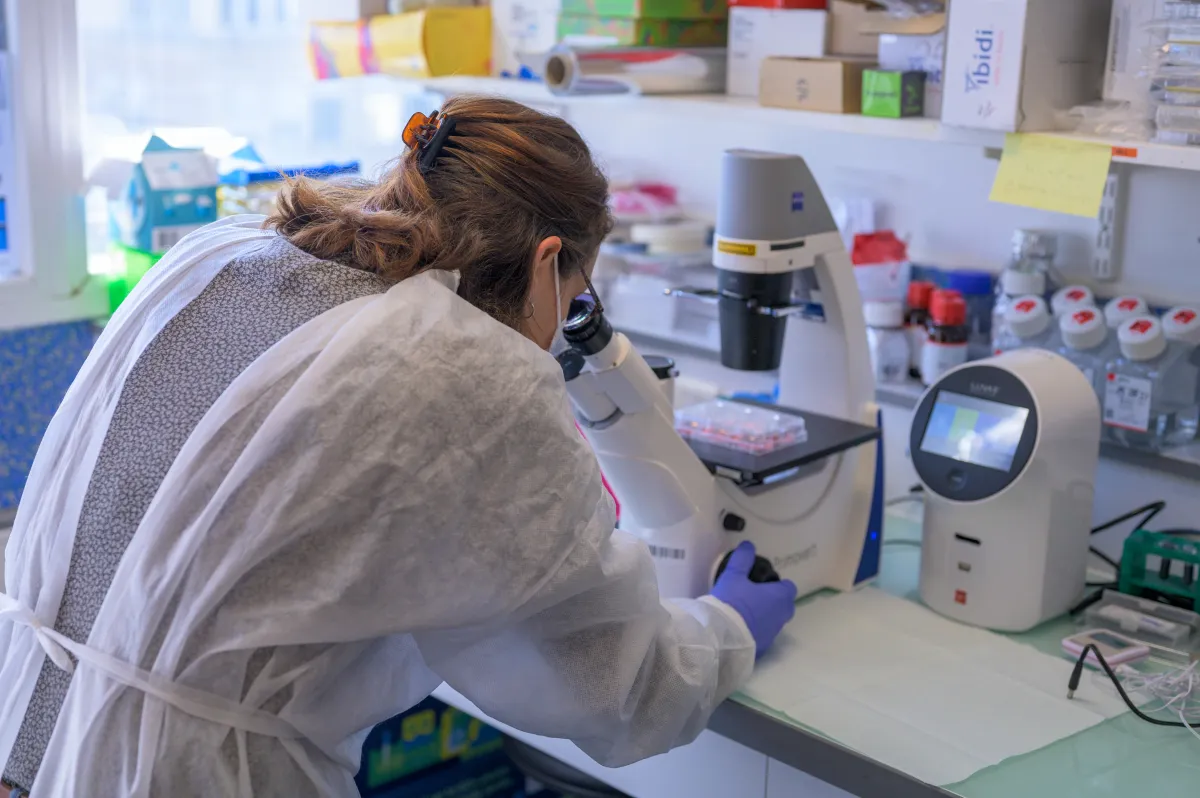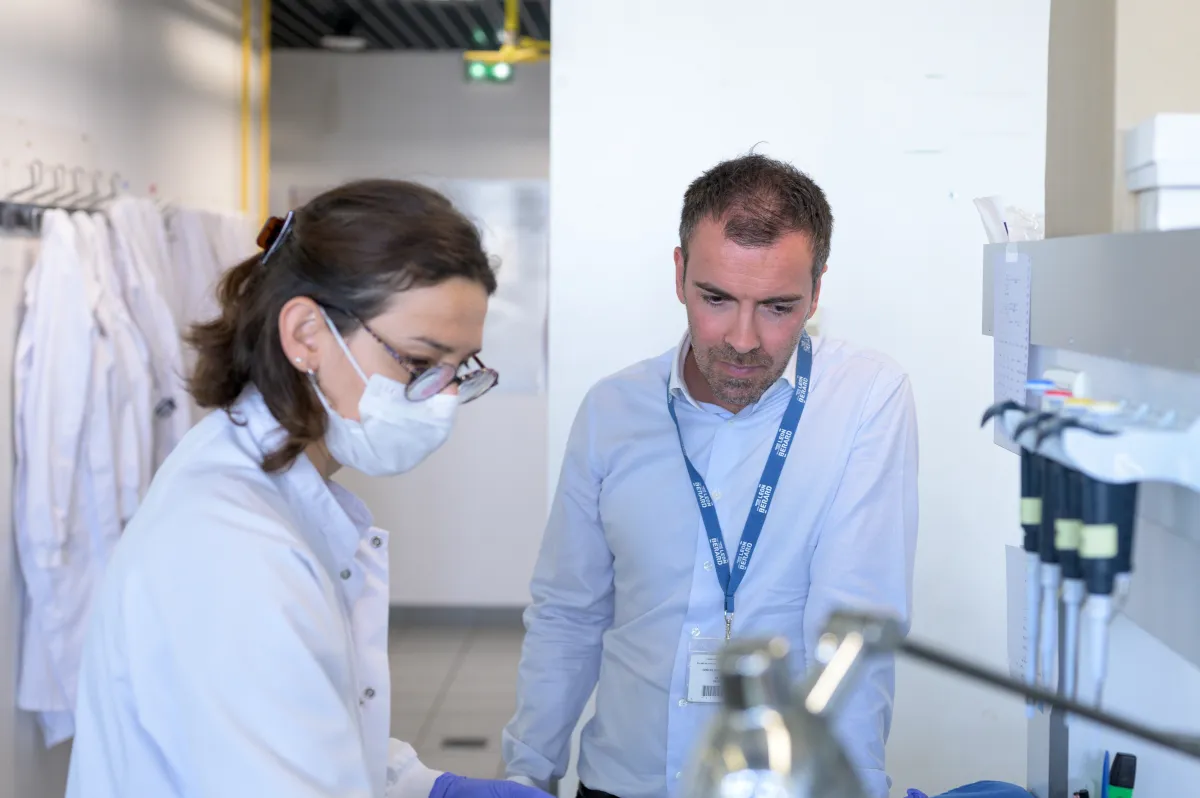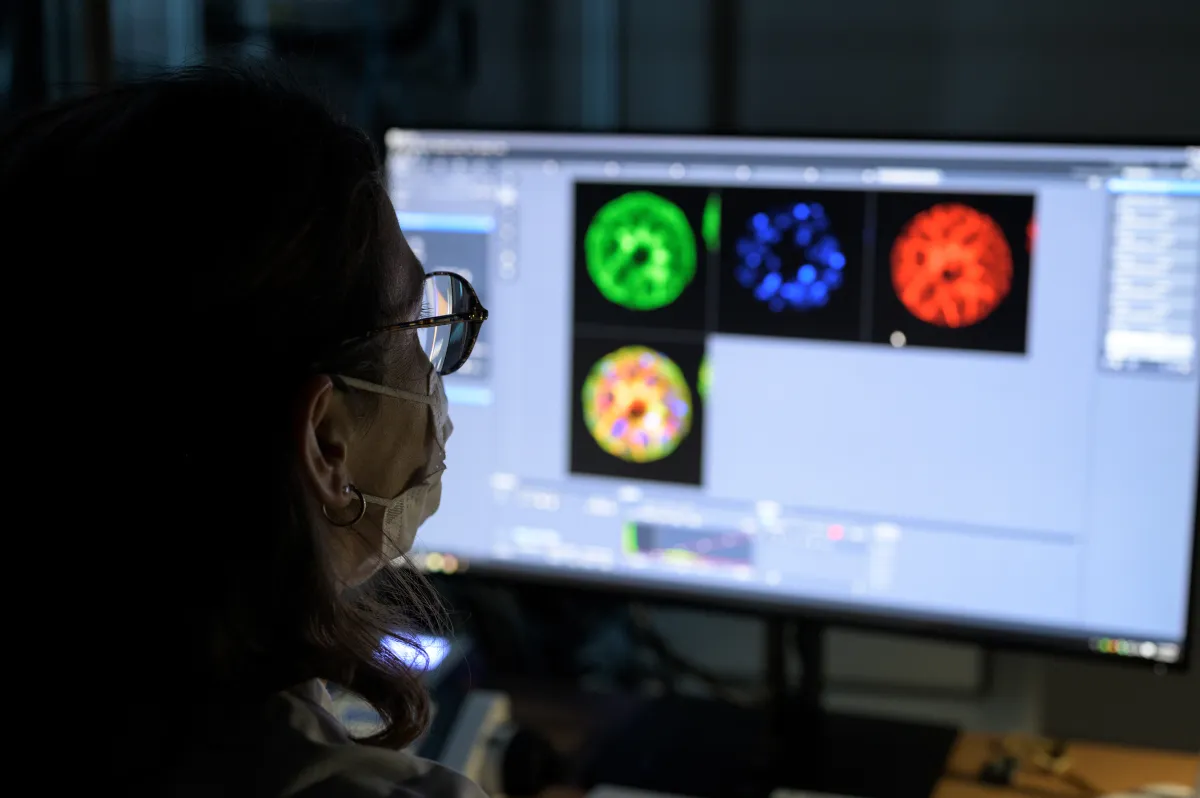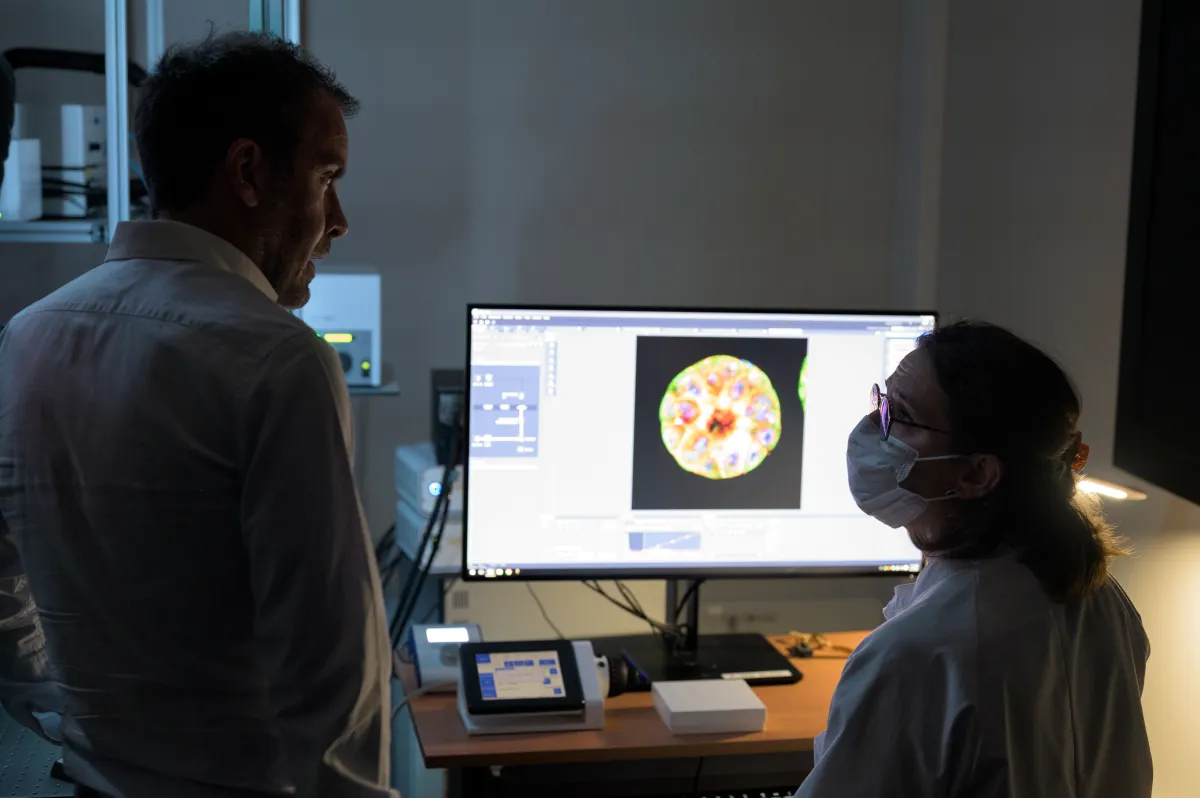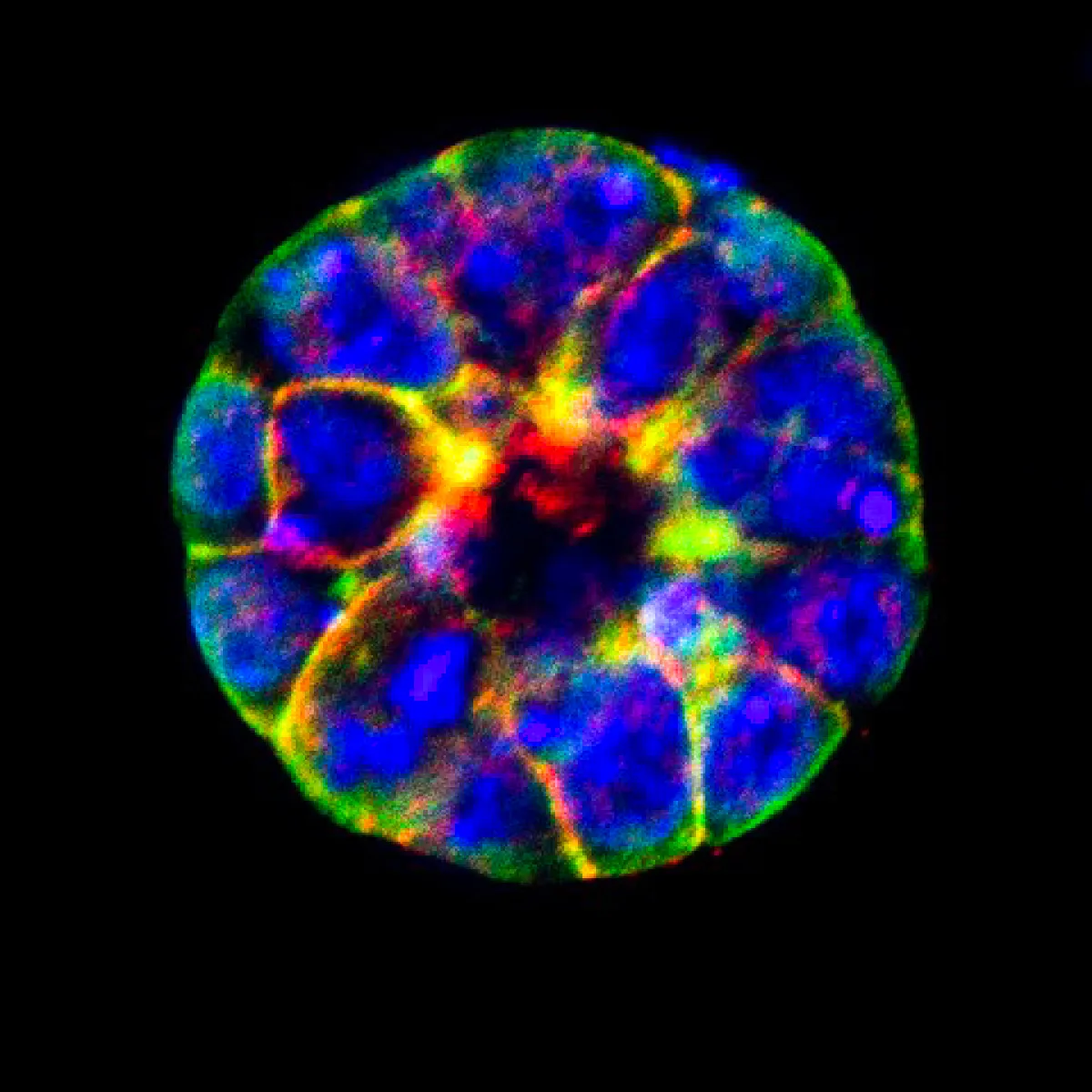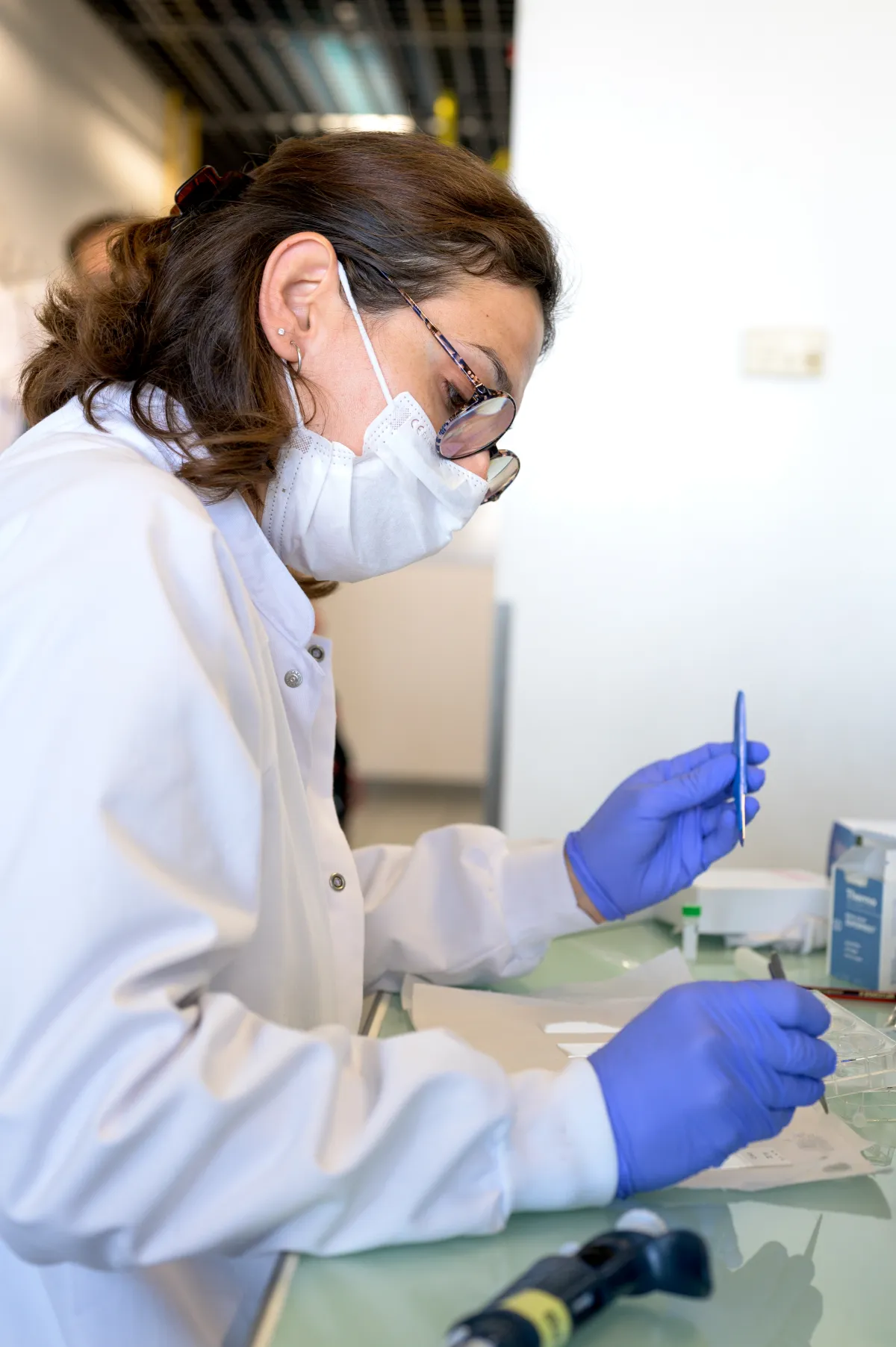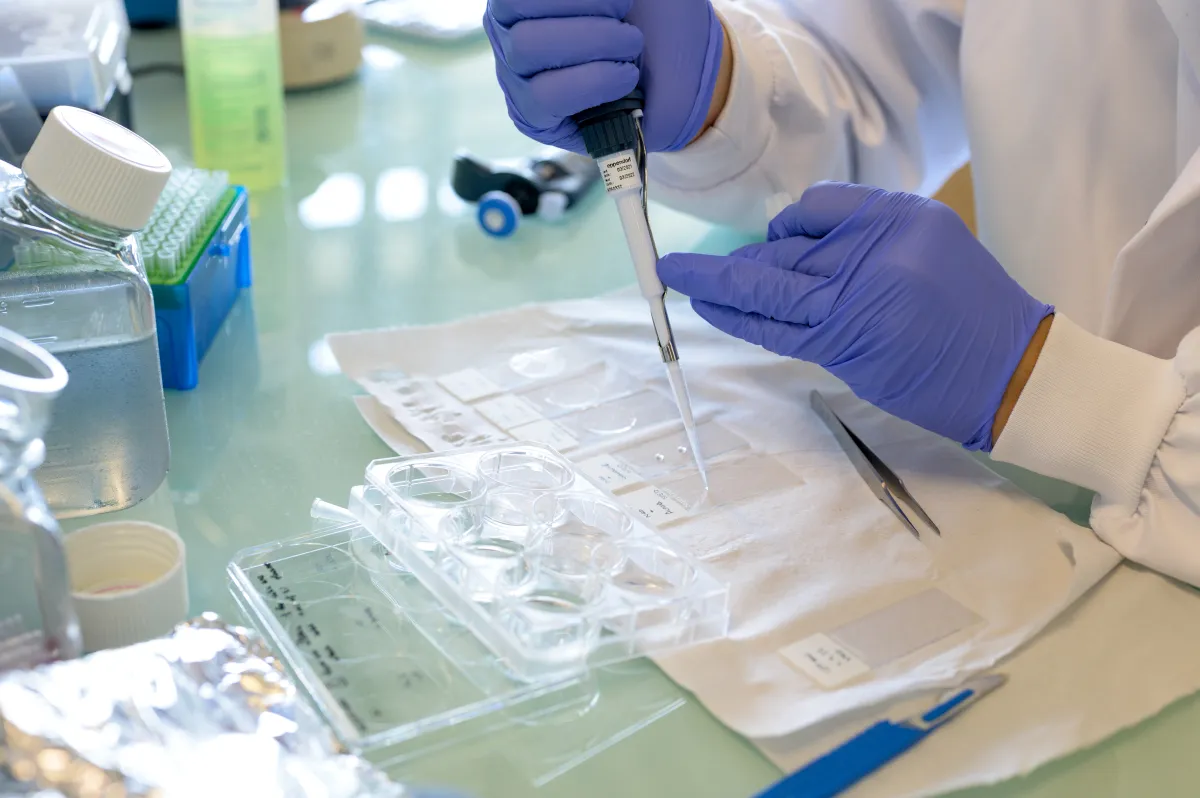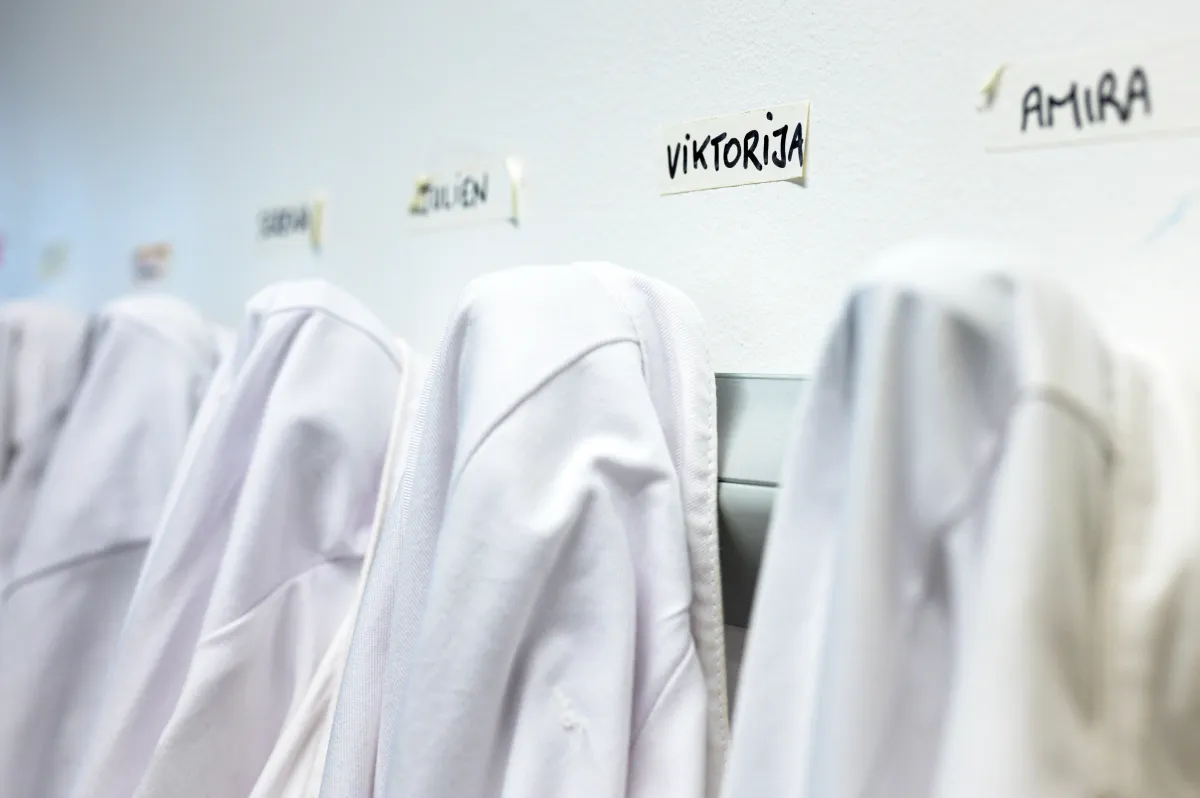Fabrice Lavial Cellular reprogramming, for better or worse
Fabrice Lavial, Inserm Research Director, Cancer Research Center of lyon, France
- 2022 • Impulscience
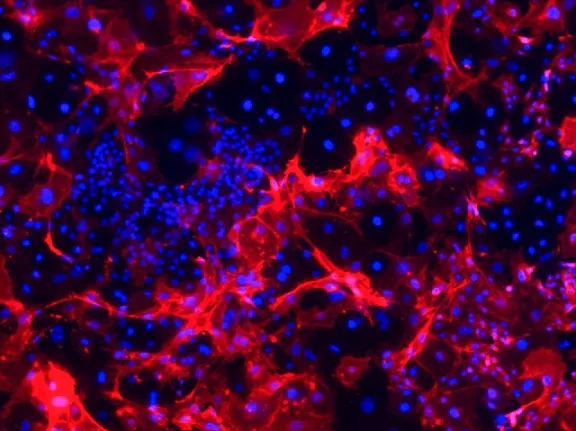
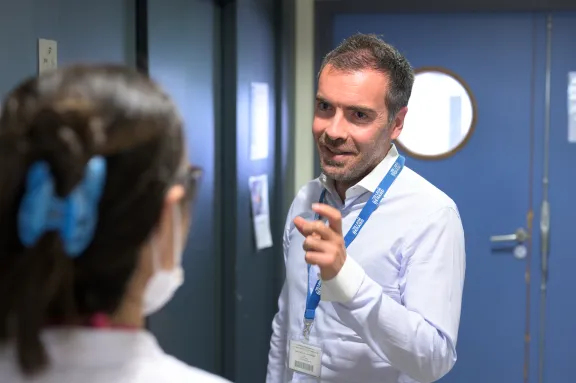

In cellular reprogramming, differentiated adult cells assume the characteristics of stem cells, thereby boosting the regeneration capacity of certain tissues. Fabrice Lavial is trying to understand the genetic mechanisms that might allow the benefits of cellular reprogramming to be kept while avoiding the risk of developing cancer. Understanding and limiting those risks would be a major advance for regenerative medicine.
The promise of cellular reprogramming
During development, stem cells differentiate into specialized cells characterized by genetic expression programs specific to each cell type. Those identities are expected to remain stable as cells divide. However, differentiation can be "erased" by using four factors (Oct4, Sox2, Klf4 and c-Myc) that act on genetic expression and give cells the characteristics of stem cells again. This process is called cellular reprogramming. We can imagine taking skin cells from a patient, reprogramming them to obtain stem cells, then programming them again into brain cells, for example. This type of process holds out tremendous therapeutic potential.
The dark side of reprogramming
These great therapeutic promises should be taken with caution. More research is necessary to understand the mechanisms and long-term consequences of reprogramming. Indeed, when carried out in animals (in vivo), reprogramming boosts the regeneration capacity of certain tissues but also causes a disease where cell multiplication is uncontrolled: cancer. Consequently, despite their revolutionary effects, the molecular mechanisms triggered by in vivo reprogramming must be understood better to avoid reaching the point where cells become cancerous. The reprogramming process has similarities with cancer, such as giving cells the ability to renew themselves and resist aging and cell death. The genes involved in both processes have received little attention, mainly due to a lack of dedicated genetic tools, yet this research will be crucial to understanding interactions between reprogramming and cancer, which have diametrically opposite effects.
A mechanism in common with the development of cancer
Impulscience grant will allow Dr. Lavial's team to answer key questions before considering therapeutic prospects using cellular reprogramming. He will compare and study the genetic expression profiles of reprogrammed cells and lung cancer cells. This will reveal the molecular program allowing cells to acquire the ability to reprogram themselves and determine the critical point at which they become cancerous. The research program’s originality lies in using mouse models developed in Dr. Lavial's laboratory that allow him to accurately control when and in which cells reprogramming and tumor growth will be triggered. That way, the team can map genetic events and predict critical moments. Researchers will be able to pinpoint which genes need to be blocked to keep the reprogrammed cells from becoming cancerous.
Fabrice Lavial in a few words
In 2008 Fabrice Lavial obtained his PhD from the École Normale Supérieure de Lyon, where he explored the role of key pluripotency genes, Oct4 and Nanog, in chicken embryo development. During his post-doctoral stay at Imperial College London, he studied the functions of specific factors in stem cells and in reprogramming in the mammalian embryo. In 2014, he joined the Cancer Research Center of Lyon to create his laboratory thanks to an ATIP-Avenir grant. Since then, he and his team have contributed to the field of cellular reprogramming research, most recently focusing on cancer research.
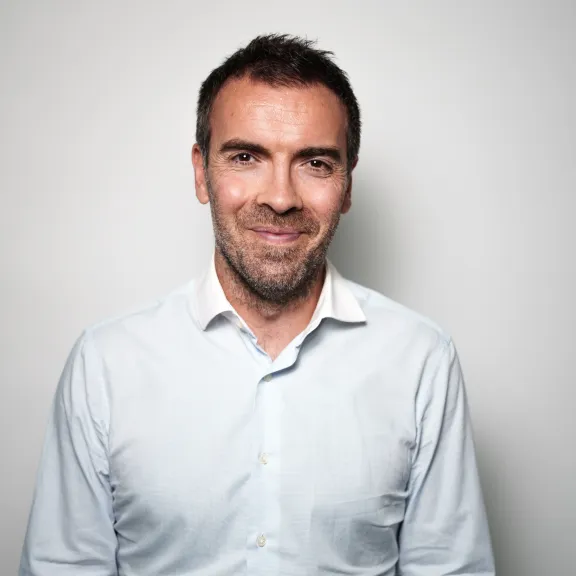
Impulscience
Impulscience allocates 7 new grants each year to researchers in the life sciences. Focused on the mid-career, this program aims to support this crucial stage for the development of research projects.
All the award-winners